Democratic Republic Of Congo
Residents of the Democratic Republic of Congo’s capital Kinshasa say they are struggling to cope with inflation, as a weakening Congolese franc has led to increased price of foodstuffs and other basic commodities.
Analysts say the Congolese franc has lost more than 6 percent of its value against the dollar this year.
Africa’s leading copper producer has been buffeted by low commodity prices and cutbacks in the mining sector, which have eaten away at foreign exchange reserves and heaped pressure on the franc.
Fears of inflation and the government’s desire to reduce the supply of francs in the economy in order to ease exchange rate pressures led the government in May to propose slashing the current budget by 22 percent.
Government belt-tightening has reduced deficits and helped contain the depreciation of the franc, economists say.
However, according to the International Monetary fund (IMF), the spending cuts could depress economic growth, lead to further depreciation and higher inflation.
In Kinshasa’s bustling markets, traders express concern.
“The strength of the dollar (against the local currency) happened suddenly and led to the increase of merchandise. The rate has slightly come down, but the price of goods has not changed. We still buy our merchandise at a high price, and we have to make a profit, but right now prices remain high and nothing has changed,” said one trader Espe Pemba.
“We have been suffering as a result of the high exchange rate. We need change, because when we come here to the market with a certain amount of money, we are unable to buy anything because all the prices have changed. Prices are high, so the government needs to find a solution,” added another trader, Rufin Maboko.
Congo’s central bank intervened in February to reduce the exchange rate pressures by buying Congolese francs and increasing the percentage of deposits banks must keep at the central bank.
But the bank’s foreign currency reserves are low, covering only about five weeks’ worth of imports, limiting its current ability to take further measures.
Additional funding of the central bank could come from international commercial loans, domestic securities or assistance from bilateral or multilateral donors.
Analysts also warn that the current climate of political uncertainty will further push the franc into turmoil.
Congo has seen a wave of violent protests in recent months, between police and opposition supporters, over president Joseph Kabila’s delay of elections that are due to be held in November this year.
“Because of its outward orientation, the Congolese currency is heavily dependent on exterior factors and markets. Remember we are a country that heavily relies on exports, as well as on commodities, which is where we get our foreign currencies, in order to allow us to import. The weak structure of the country’s economy as well as the current political climate has also added to uncertainty in the market, and all these factors contribute to weakening our economy, and could lead us into a vicious cycle,” said political economist, Al Kitenge.
The government said in May that it would seek between $250 million and $500 million in budget support from the World Bank in the coming months.
In a statement, the World Bank said it was prepared to discuss with the government options to deal with falling commodity prices but has not committed to providing budget support.




![Is Africa’s soil healthy enough for food security? [Business Africa]](https://static.euronews.com/articles/stories/08/39/08/36/320x180_cmsv2_6c750e33-e25d-57d1-a896-b069180361f4-8390836.jpg)
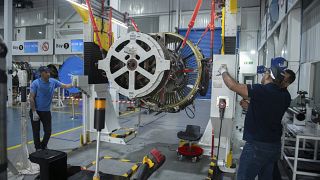
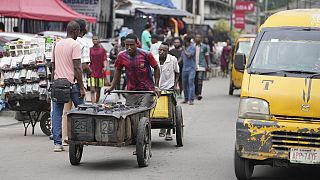

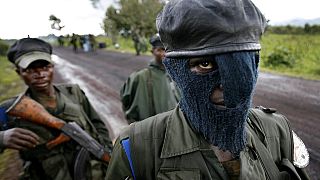
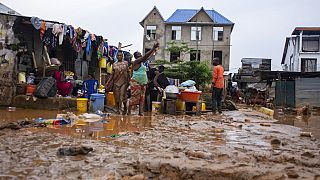
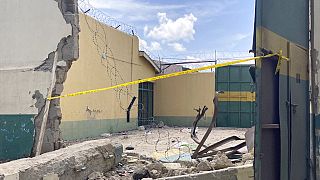
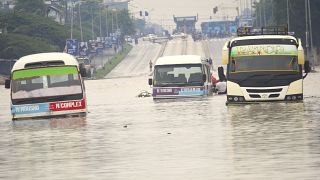
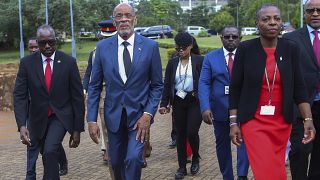
02:24
Zimbabweans forced to use US dollar in absence of new currency ZiG
01:14
Poll shows Egypt's March inflation figures expected to edge upwards
11:11
BRICS Currency vs US Dollar: Is the end of Dollar dominance near? [Business Africa]
02:39
Lack of cash crumbling business activities, livelihood in Nigeria
Go to video
Nigeria's currency swap: Leader pushes back against criticism and challenges
01:53
Nigeria push for new currency notes creates crisis